Dextrose Injection 50%
$35.00 – $280.00
| Pack Size | Price | Price / Unit | Quantity | |
|---|---|---|---|---|
| 1 Pack | $35.00 | $35.00/ unit | ||
| 5 Packs | $150.00 | $30.00/ unit | ||
| 10 Packs | $280.00 | $28.00/ unit |
Want to order in bulk / B2B price ? | Send Inquiry |


| SKU | 11364 |
| Manufacturer | Rusoma Laboratories Pvt Ltd |
| Categories | Health |
| Delivery Time | 10 - 14 Working Days |
| Strength | 25g/50ml |
Introduction to Dextrose Injection 50%
Dextrose Injection 50% is a medical product used in healthcare settings to treat various medical conditions, primarily hypoglycemia (low blood sugar). It is a sterile solution containing dextrose, a form of glucose – a simple sugar that serves as a primary source of energy for the body’s cells.
Dextrose Injection 50% is administered intravenously (IV), meaning it is directly introduced into the bloodstream through a vein. It’s produced by a pharmaceutical company called Rusoma Laboratories Pvt Ltd.
It’s important to note that Dextrose Injection 50% is a medication that requires proper training and medical expertise for administration. If you or someone you know is experiencing hypoglycemia or a medical emergency, it’s important to seek immediate medical attention.
Uses of Dextrose Injection 50%
Here are the main uses of Dextrose Injection 50%
- Treatment of Hypoglycemia
- Diabetic Emergencies
- Unconsciousness
- Emergency Medical Care
- Diagnostic Tool
How Does Dextrose Injection 50% Works?
Dextrose Injection 50% works by supplying a concentrated dose of glucose (a simple sugar) directly into the bloodstream. Glucose is the primary energy source for the body’s cells, especially the brain and muscles. This injection is typically used in medical settings to treat severe hypoglycemia (low blood sugar) or as a caloric supplement when oral intake is not possible.
Once administered intravenously, the glucose is rapidly absorbed and utilized by body tissues. It helps restore normal blood sugar levels, prevent brain dysfunction due to hypoglycemia, and provide quick energy in emergency situations.
Side Effects of Dextrose Injection
- Vein irritation
- Warm sensation during or after administration
- Flushing
- Mild increase in blood sugar (hyperglycemia)
- Mild fluid retention (fluid overload)
- Minor electrolyte shifts
How to Manage Side Effects?
- Monitor Blood Sugar Regularly
- Inform Healthcare Team Promptly
- Stay Hydrated Well
- Avoid Excessive Doses
- Watch For Allergic Reactions
- Check Electrolyte Levels Frequently
- Follow Medical Instructions Strictly
Warnings & Precautions
- Administer Dextrose 50% cautiously in diabetic patients, as it can cause sudden spikes in blood glucose levels.
- Not suitable for patients with intracranial or intraspinal hemorrhage due to risk of increased intracranial pressure from rapid fluid shifts.
- Use cautiously in patients with renal impairment to avoid fluid overload and increased risk of electrolyte imbalances.
- Ensure intravenous line is properly placed, as extravasation can cause local tissue irritation or damage.
- Do not use Dextrose 50% in dehydrated patients without adequate electrolyte correction and fluid replacement.
- Monitor patients with thiamine deficiency closely, especially alcoholics, as glucose may precipitate Wernicke’s encephalopathy without thiamine supplementation.
- Ensure sterility and check for particulate matter or discoloration before administration to avoid potential infection or reaction.
Storage
- Store at a temperature between 20°C to 25°C (68°F to 77°F).
- Protect from excessive heat and freezing; avoid direct sunlight exposure.
- Keep the solution in its original container until ready for use.
- Do not use if the solution is discolored, cloudy, or contains particles.
- Discard unused portion immediately after opening—do not save for later use.
- Store out of reach of children and unauthorized personnel.
- Follow hospital or pharmacy guidelines for proper disposal of medical waste.
Frequently Asked Questions
1. Can Children Receive Dextrose Injection 50% For Low Blood Sugar Emergencies?
Ans. Yes, but Dextrose 50% should only be used in pediatric patients under strict medical guidance and carefully calculated dosage.
2. Can Dextrose Injection 50% Cause Any Immediate Reactions After Administration?
Ans. Yes, Dextrose 50% may cause vein irritation, swelling at the injection site, or a sudden spike in blood sugar levels.
3. How Quickly Does Dextrose Injection 50% Work After It’s Given?
Ans. Dextrose 50% works very rapidly, often within minutes, by raising blood glucose levels and providing immediate energy to body tissues.
4. What Should I Tell My Doctor Before Receiving Dextrose Injection 50%?
Ans. Before using Dextrose 50%, inform your doctor about any history of diabetes, kidney problems, fluid retention, or electrolyte imbalances.
| Pack Size | 1 Pack, 10 Packs, 5 Packs |
|---|---|
| Price/Unit | $28/unit, $30/unit, $35/unit |
Be the first to review “Dextrose Injection 50%” Cancel reply
Related Products
No related Products Found

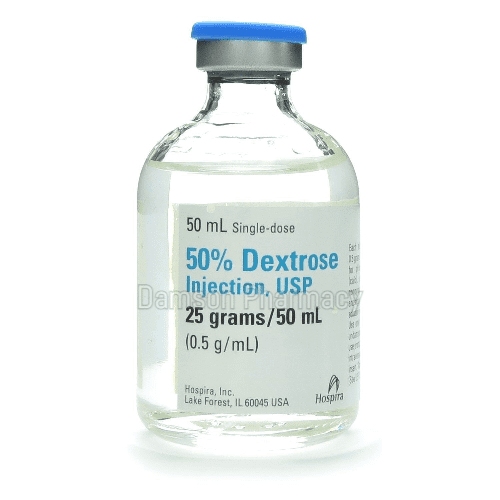
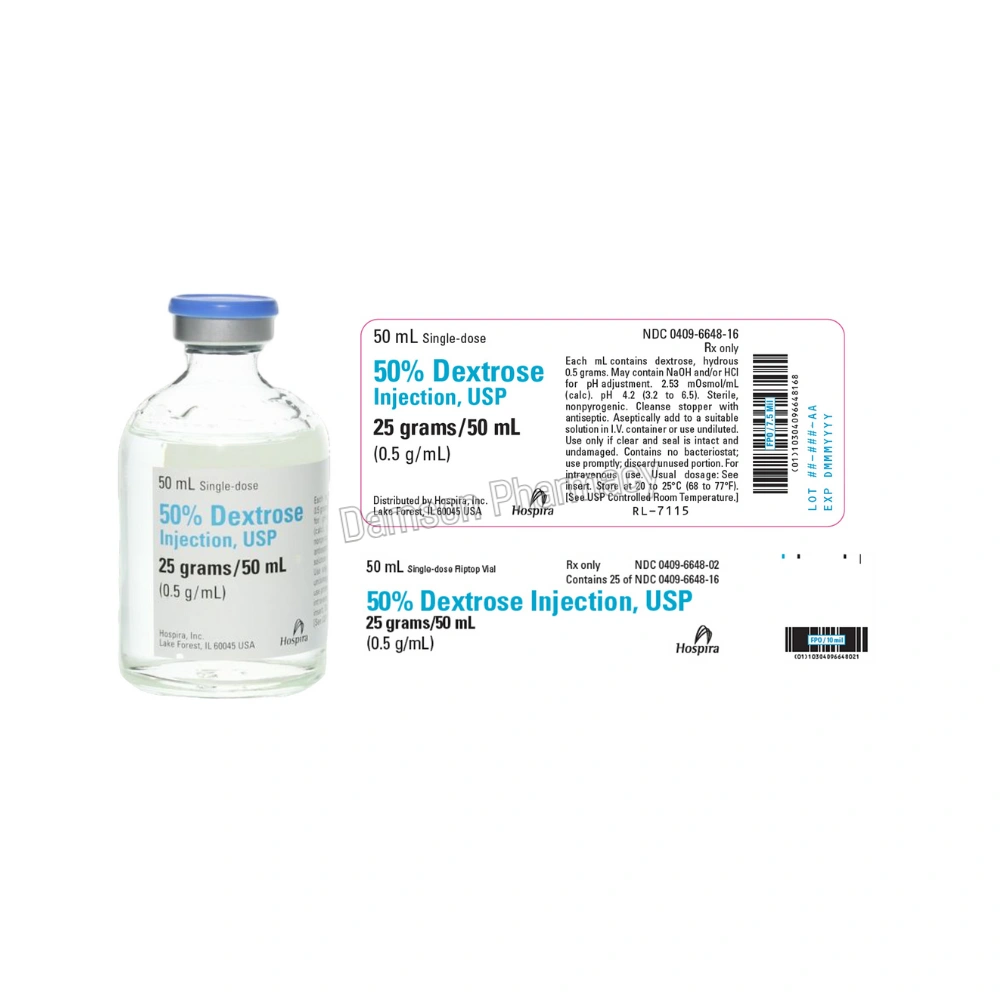
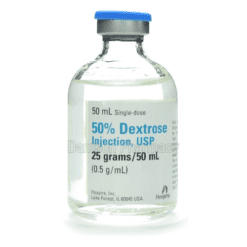
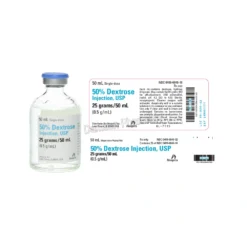
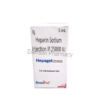
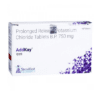
Reviews
There are no reviews yet.